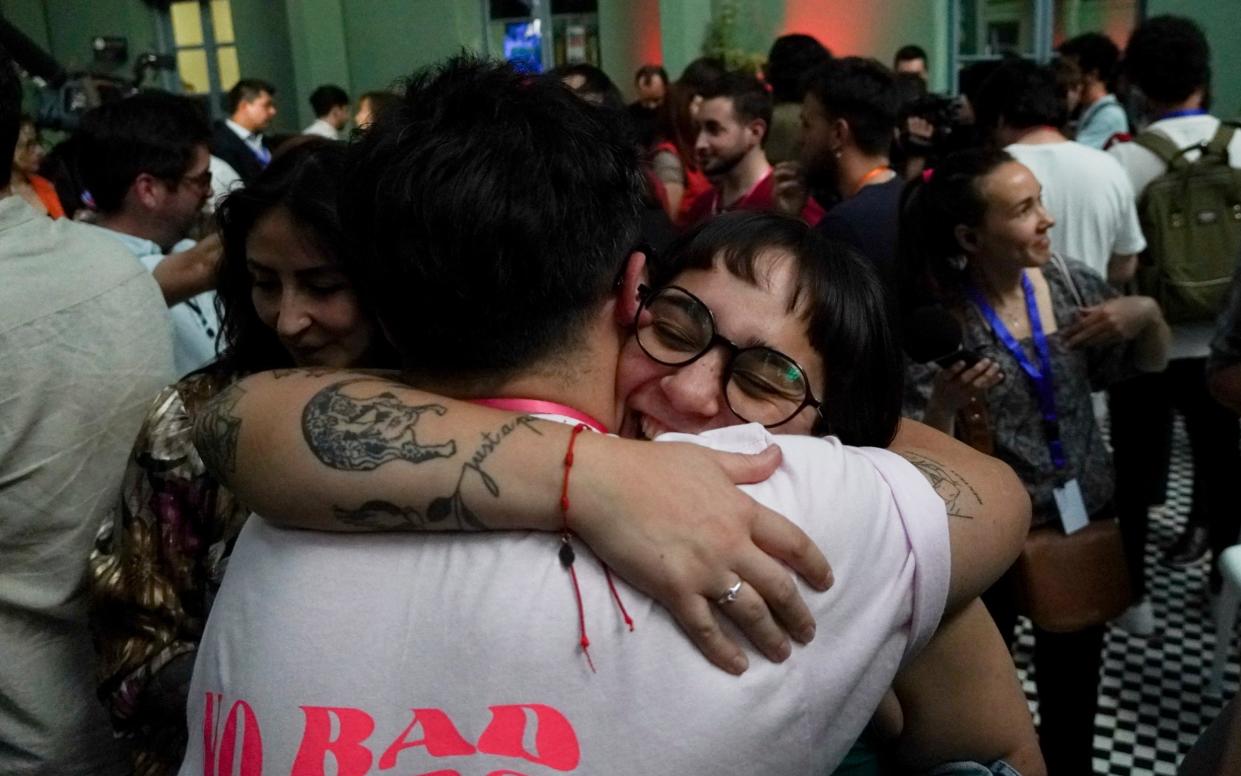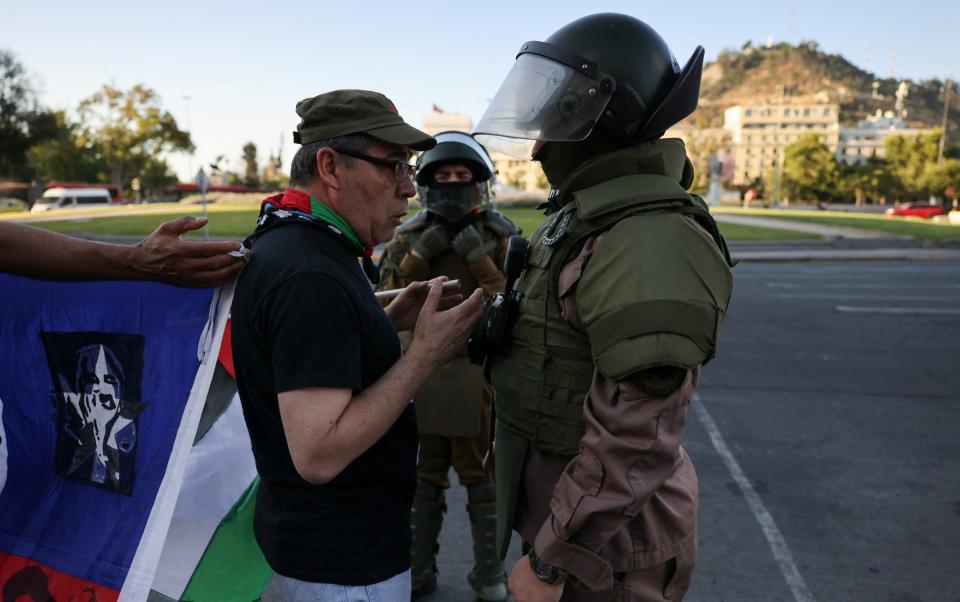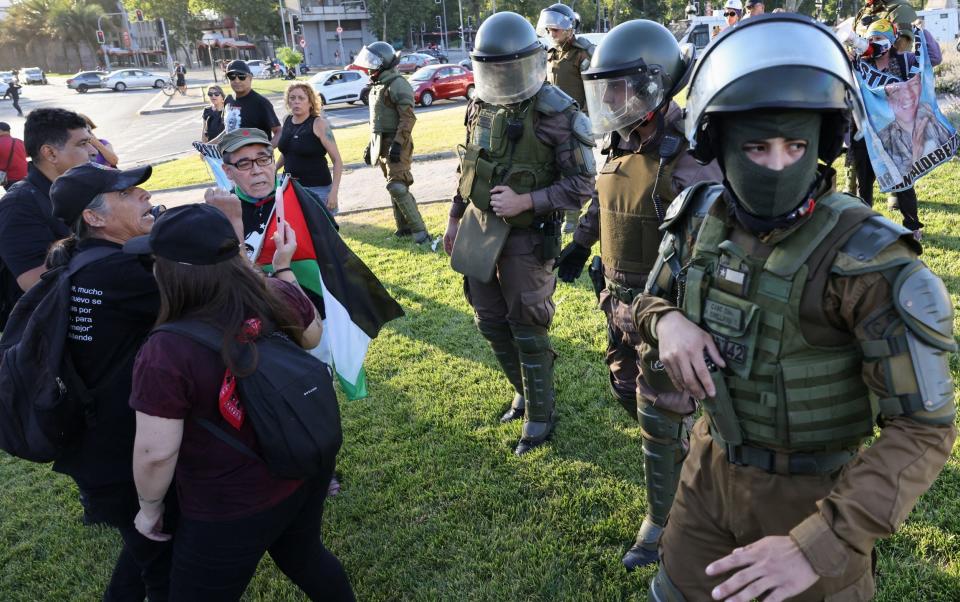Chile votes against controversial rewrite of Pinochet-era constitution

- Oops!Something went wrong.Please try again later.
Chileans have rejected a new constitution seeking to replace its Pinochet dictatorship-era text which many had feared would significantly reverse progress in the country.
The draft supported a pro-market approach to governing, threatened the expulsion of irregular migrants, restricted the right to strike and could have led to stricter abortion restrictions. With 90 per cent of ballot boxes tallied, a total of 56 per cent Chileans rejected the new text.
It is the second time a draft constitution has been rejected in less than two years.
The attempt at redrawing the country’s social code was born out of Chile’s 2019 protests against deep-rooted inequality and political dissatisfaction. Thirty people were killed, parts of the capital destroyed and hundreds left with severe injuries.
In response to the demonstrations, the government called a referendum – with 78 per cent voting in favour of replacing the constitution created by the government of Gen Augusto Pinochet – and the formation of a representative assembly to redraft it.

The first text, running at 388 articles and written mostly by Leftists, would have been the world’s most progressive charter, giving Chileans the right to housing, internet access and clean air. It also would have guaranteed the autonomy of minorities, legalised abortion and introduced gender equality.
But last year’s version was overwhelmingly rejected, with 62 per cent considering it not representative of society as a whole. In its wake, another assembly was chosen, this time largely led by a far-right party.
The second 216-article draft, which Chileans voted against on Sunday, was considered even more conservative than the 1980 constitution it would have replaced, placing private property rights and strict rules around immigration at its centre.
Among the most controversial points were the immediate expulsion of irregular migrants and restrictions on workers’ right to strike. It would have also allowed the early release – for age and health reasons – of convicted criminals of the Pinochet dictatorship, of whom 134 are still behind bars.

There was also widespread concern that it sought to open the door for a new constitutional review on abortion access, by a slight change of wording on the right to life.
“It is very intentional,” said Paula Avila-Guillen, a human rights lawyer, ahead of the vote. “By changing the title of the embryo from ‘Que’ [that] to ‘Quien’ [who] it’s practically changing the embryo to the treatment of a person.”
Much like the original text, the second draft also made no reference to the Indigenous community, which made up almost 13 per cent of the population.
Polls had suggested for months that Chileans would reject the proposed text, although the margin had tightened in recent weeks.
After four years of discussions and disputes, observers say the latest rejection suggests Chileans are fundamentally uncomfortable with extremes on either side.
Some voters lamented the country’s political polarisation. “Our differences are so irreconcilable that we cannot find a middle ground from which to move forward, and that is very sad indeed,” architect Claudio Fernandez, 41, told Reuters in the capital Santiago.
Politicians and the government have previously said there will, at least for now, be no third attempt.
On Sunday, Gabriel Boric, Chile’s Leftist president, said that his government would nonetheless continue to work on behalf of the people no matter the outcome.
“Regardless of the results, our government will continue to focus clearly on the priorities of the people,” Mr Boric said.

